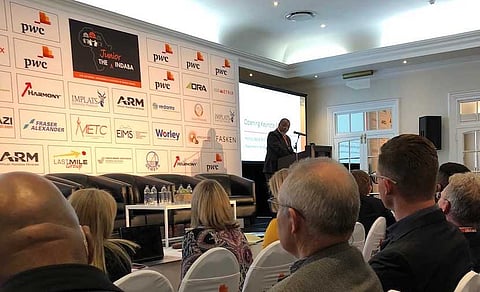Mantashe confirms business friendly face of new Ramaphosa Era
This is the Rational Perspective. I'm Alec Hogg and in this edition, Ramaphosa's Mining Minister gets business-friendly. Ahead of South Africa's May 8th General Election, President Cyril Ramaphosa put a lot of emphasis on following a business-friendly agenda that would get the country working again and to do so quickly. True to his word; over the weekend, Ramaphosa called together his cabinet for the first Lekgotla of the new administration, just days after appointing them. The reappointed Mining Minister who had the Energy portfolio added to his responsibilities now, is 63-year old Gwede Mantashe. Like Ramaphosa, he is a former Secretary-General of the National Union of Mineworkers. This morning, Mantashe became the first cabinet minister to take a public platform.
This morning, I went along to the opening of the Junior Mining Indaba at Johannesburg's Country Club in Auckland Park joining a packed room of miners who were mostly grateful to have an industry veteran fighting their corner in cabinet debates. Mantashe's address confirms that a breath of fresh air is blowing through relationships between government and business. Here are some of the highlights. – Alec Hogg
___STEADY_PAYWALL___

